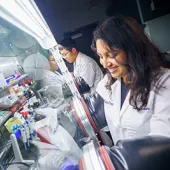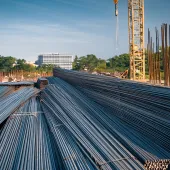AI evidence project set to shape concrete policy
A new £11.5 million UKRI-backed project will use artificial intelligence to speed up how policymakers access scientific evidence – with implications for future standards and policy on concrete decarbonisation and health.
The initiative, known as METIUS (Mobilising Evidence Through Artificial Intelligence and User-Informed Synthesis), will create a real-time “living evidence” system that combines AI with expert analysis. It aims to provide governments and international bodies with faster access to research on issues ranging from climate change and energy to health, housing and justice.
For the UK concrete sector, the project is significant. Around 8% of global carbon emissions come from cement and concrete, and policymakers are under pressure to set clear frameworks for reducing embodied carbon. By making evidence on supplementary cementitious materials, carbon capture and recycling more accessible, METIUS could influence standards, procurement rules and compliance requirements for producers and contractors.
The system will also support policymaking in areas such as worker health, including dust exposure and other site safety risks.
Funded by UKRI through the ESRC and NERC, with co-funding from the Department for Science, Innovation and Technology and global partners including the UN, the project will run for five years from October 2025. It is led by Queen’s University Belfast alongside a consortium of UK and international universities and research organisations.
Why AI matters for concrete policy
- Decarbonisation – faster evidence on SCMs, carbon capture and recycling pathways.
- Procurement & standards – informs future low-carbon specifications and compliance rules.
- Health & safety – supports policy on worker exposure to dust, noise and site risks.
- Global alignment – strengthens UK role in shaping international sustainability standards.







